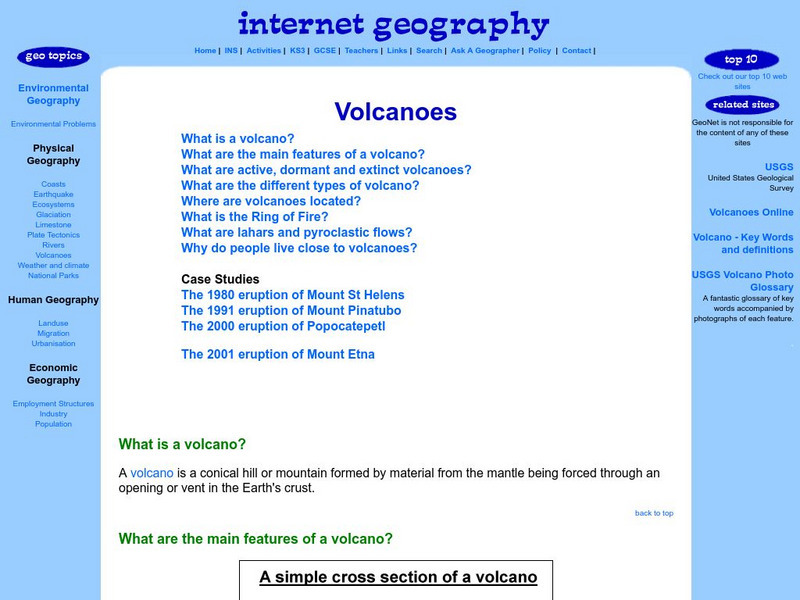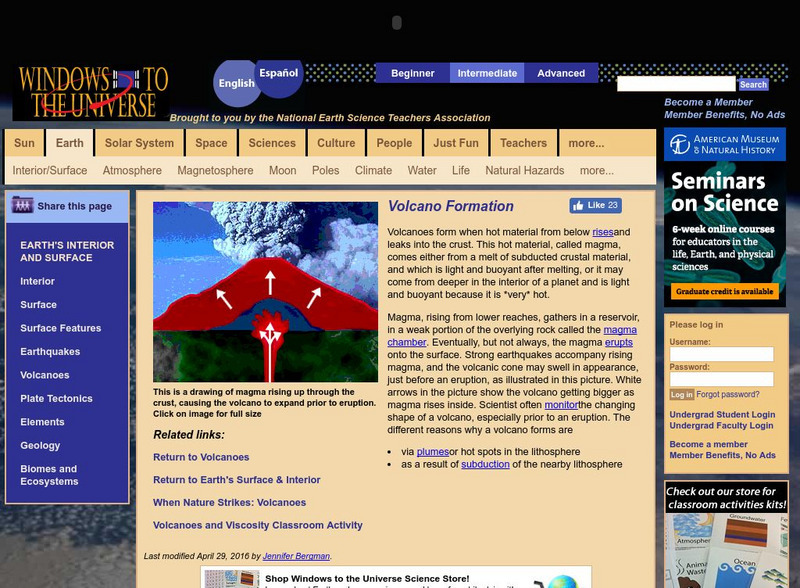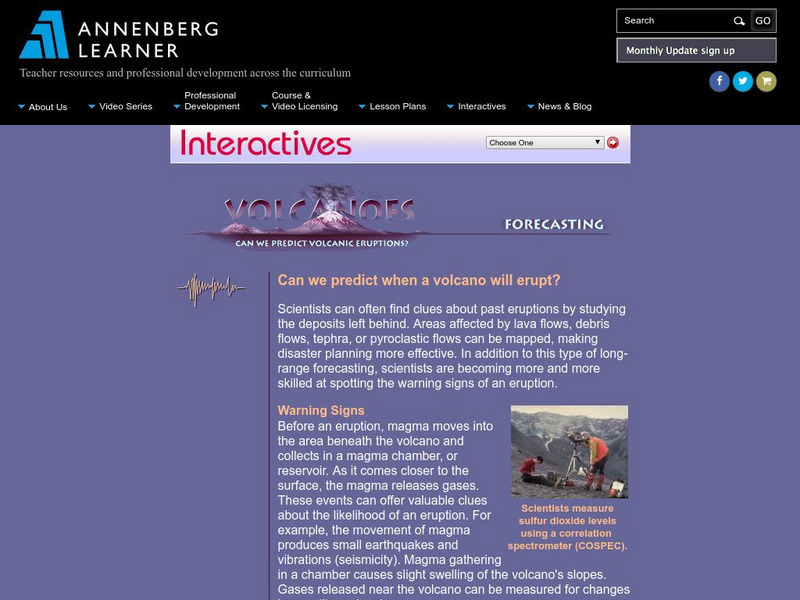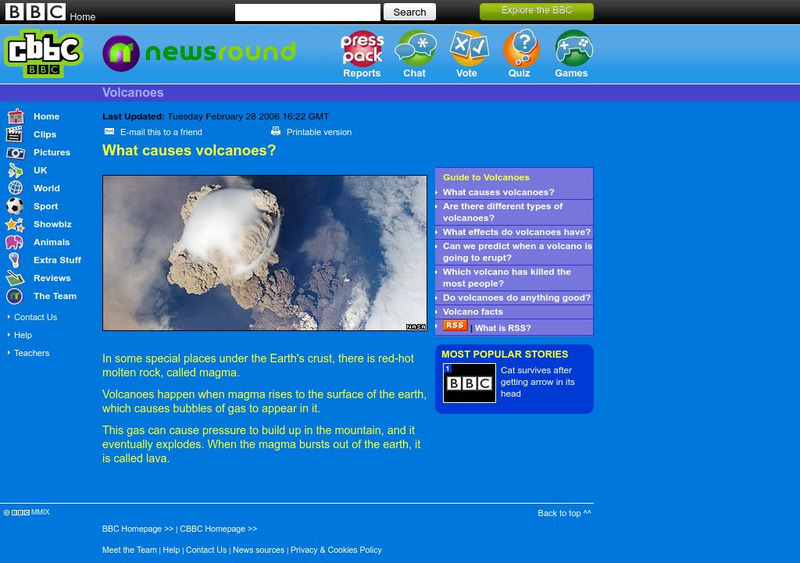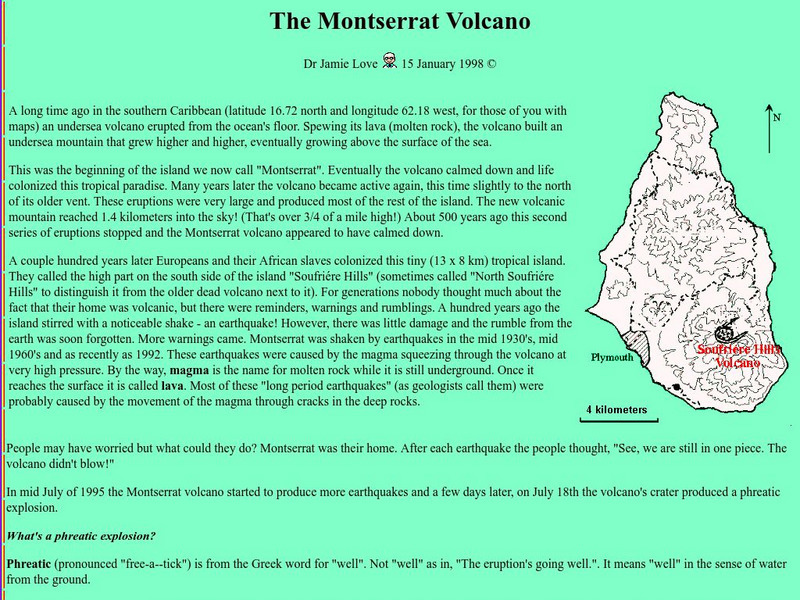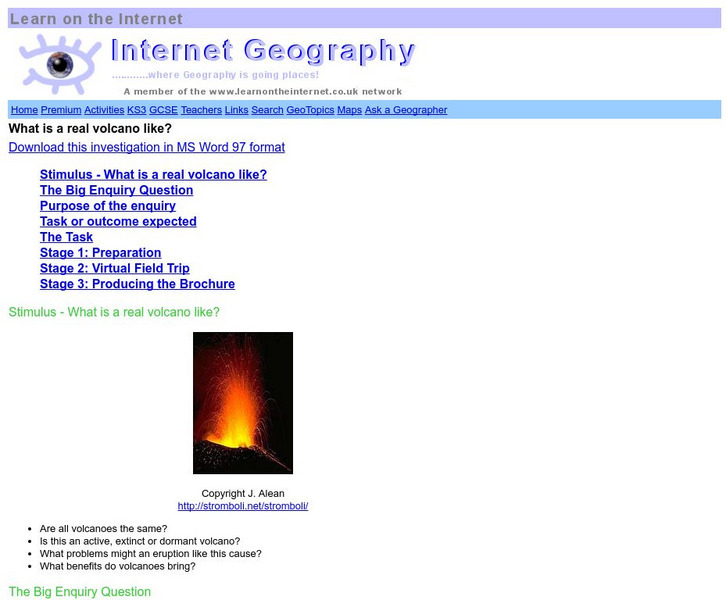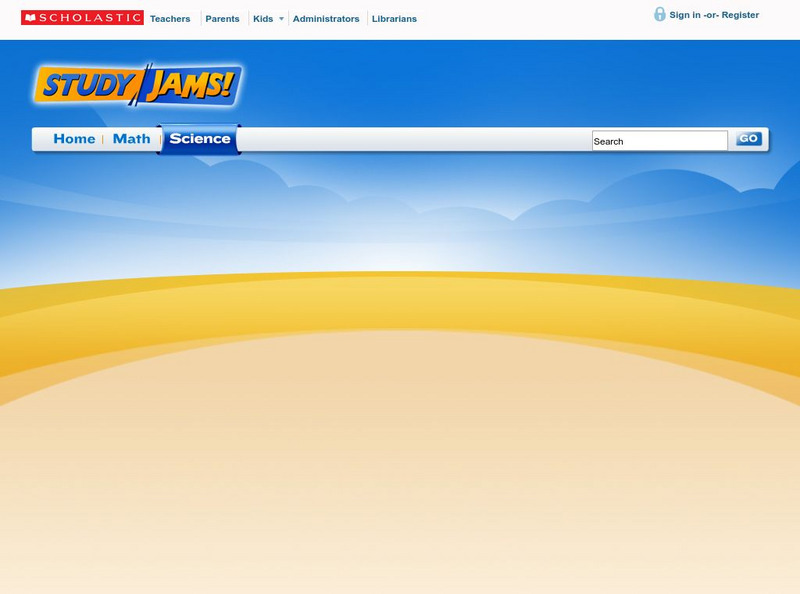Other
Geo Topics: Volcanoes
This site explains what a volcano is by looking at the features, types, and the location of volcanoes The site also looks at some case studies for further information.
Children's Museum
Children's Museum of Indianapolis: Floating Rock Geo Mysteries
Did you know that there are some rocks that actually float? Follow this interactive investigation to find out which ones and why.
Georgia Department of Education
Ga Virtual Learning: Rock Cycle
This tutorial explains the rock cycle--from beginning to end! It is full of activities, assessments, games, slideshows and all kinds of interactive material. Learn what rocks are made of and how they change from one form to another....
TeachEngineering
Teach Engineering: Ready to Erupt!
Students observe an in-classroom visual representation of a volcanic eruption. The water-powered volcano demonstration is made in advance, using sand, hoses and a waterballoon, representing the main components of all volcanoes. During...
TeachEngineering
Teach Engineering: Measuring Lava Flow
Students learn how volume, viscosity and slope are factors that affect the surface area that lava covers. Using clear transparency grids and liquid soap, students conduct experiments, make measurements and collect data. They also...
National Earth Science Teachers Association
Windows to the Universe: Volcano Formation
Explanation of the factors that result in the formation of volcanoes, some basic but helpful animations and photographs.
Annenberg Foundation
Annenberg Learner: Volcanoes: Forecasting Eruptions
A look at some of the methods and problems with forecasting volcanic eruptions.
PBS
Wnet: Thirteen: Savage Earth: Volcanoes Out of the Inferno
PBS's The Savage Earth provides online learning associated with the series including vivid pictures, animations, and detailed information about volcanoes. Learn about the formation and causes of volcanoes as well as the characteristics...
Other
Bc Open Textbooks: Physical Geology: Crystallization of Magma
The minerals that make up igneous rocks crystallize at a range of different temperatures. The sequence in which minerals crystallize from magma is known as the Bowen reaction series. An explanation of the reaction series is provided...
PBS
Pbs Learning Media: Volcanism
Volcanoes are one of the most dynamic, powerful, and visible forces on Earth. This interactive resource adapted from the National Park Service uses images to describe different types and parts of volcanoes, volcanic rocks, magma, and...
Curated OER
National Park Service: Creating Flat Topped Mountains
The NPS offers a good overview of the forces that create a plateau and experiments to help students understand. Lesson plan.
Other
Bscs: Content Background Earth's Changing Surface
This is written to support and further your content learning about the dynamic nature of Earth's surface. The goal is for you to develop a conceptual understanding of landforms so that you will be able to more effectively teach...
BBC
Bbc: Cbbc Newsround Guides: Volcanoes
Learn about the cause, types, and effects of volcanoes in this guide.
NOAA
Noaa: Make Your Own Volcano [Pdf]
Learn how different types of volcanoes develop and construct a simple volcano on your own.
Science Education Resource Center at Carleton College
Serc: Igneous Rocks Model
Learners use samples of four different types of igneous rocks to observe differences in texture, color, and grain size, and then make inferences about the relative cooling histories and silica content associated with each magma type.
Wikimedia
Wikipedia: Hot Spring
This website from the encyclopedia Wikipedia contains a definition for what a hot spring is, and tells how they differ from a geyser. Links are also provided throughout for additional information on related subjects.
Other
Science Explained: Montserrat Volcano
Read an illustrated description of how an undersea volcanic eruption formed the Caribbean island of Montserrat. Includes a lengthy description of volcanic processes and defines many volcanic terms, such as lahar, tephra, and pyroclastic...
Other
Internet Geography: Volcanoes
Investigate volcanoes with this interactive site containing a virtual field trip and other activities.
Other
Georgia Perimeter College: Igneous Rocks
This resource provides a description of igneous rock, its origin and the types of rock that are formed from a volcanic eruption.
US Geological Survey
Cvo: Magma, Lava, and Lava Flows
Site delves into magma, lava and lava flows. Provides numerous links for additional references.
US Geological Survey
Usgs: Volcanic Hazards, Features, and Phenomena
Site from the U.S. Geological Survey provides a brief list of volcano terminology including descriptions as well as links to major menus.
Scholastic
Scholastic: Study Jams! Science: Landforms, Rocks & Minerals: Volcanoes
A video and a short multiple-choice quiz on the topic of volcanoes.
Scholastic
Scholastic: Study Jams! Science: Landforms, Rocks & Minerals: Igneous Rocks
A slideshow, a karaoke song to sing along to, and a short multiple-choice quiz on the topic of igneous rocks, how they are formed, and some different types.
Scholastic
Scholastic: Study Jams! Science: Landforms, Rocks & Minerals: Earthquakes
A video and a short multiple-choice quiz on earthquakes, how they form, how they are measured, and the ways they can change the surface of the Earth.


